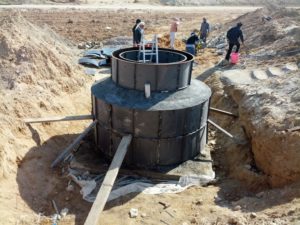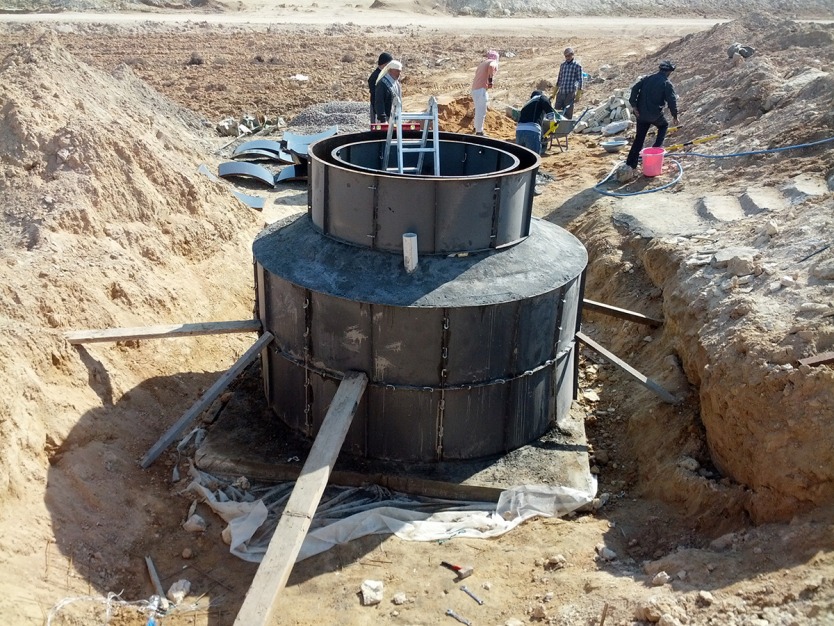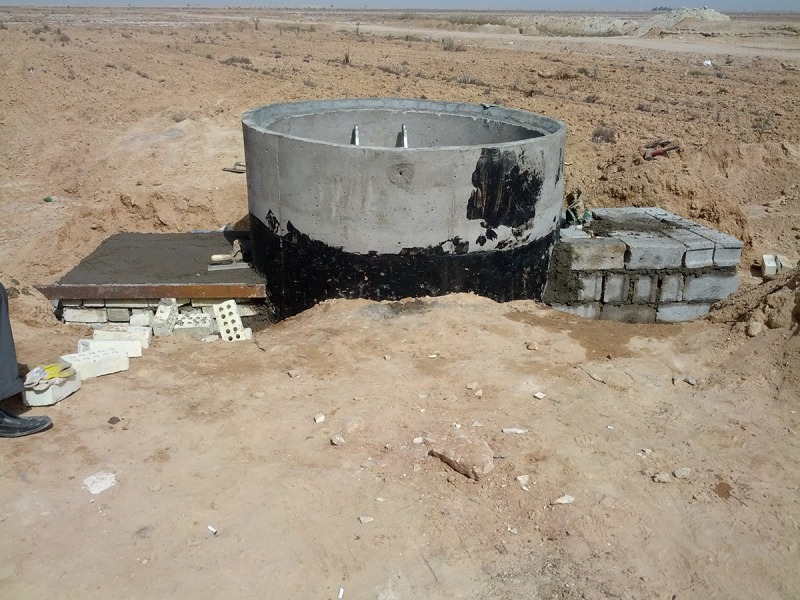
July 1, 2014
The project in Al Najaf, Iraq was run by our member Taha Majeed Lafta, a chemical engineer from the Ministry of Science & Technology, Directorate of Renewable Energy.
T.H. Culhane made a trip to Iraq in the Spring of 2013 sponsored by the US Embassy under the stewardship of Frank Finver. In Iraq, Culhane led biogas building workshops at the US Embassy, UNAMI (The United Nations Mission in Iraq), MOST (The Ministry of Science and Technology, Baghdad) and the US Embassy in Erbil. The embassy kindly purchased the steel molds for the Puxin 10m3 biogas system and we gave them as a gift to the Iraqi people. Once the molds arrived and cleared customs, Engineer Majeed, who had built ARTI style digesters with Culhane at MOST and who had been working in the field of biogas construction for several years, built Iraq’s first community-scale biodigester at a holy shrine outside of Baghdad.
Read about this project, and others, in National Geographic.
According to Taha, “The idea for this project started last year, when we met with the managers of investment in the holy places in AL-Najaf. We talked about the advantages of transferring waste into energy, especially animal waste. At the time, they were preparing to establish a big farm for farming vegetables and were building a large cattle barn for about 6,000 cows, about 15,000 sheep and about 100,000 chickens.”
He continues, “After we gave a presentation about the different kind of digesters and the production of biogas and its uses, they decided to cooperate with us. They asked us to install the first puxin 10 cu.m digester in their farm as an experiment and to show how we can turn the farm animal waste into biogas and fertilizer and, at same time, assist families with work and life inside the farm. It is better for the families to have good and clean source of energy to develop the health of the children there.”


